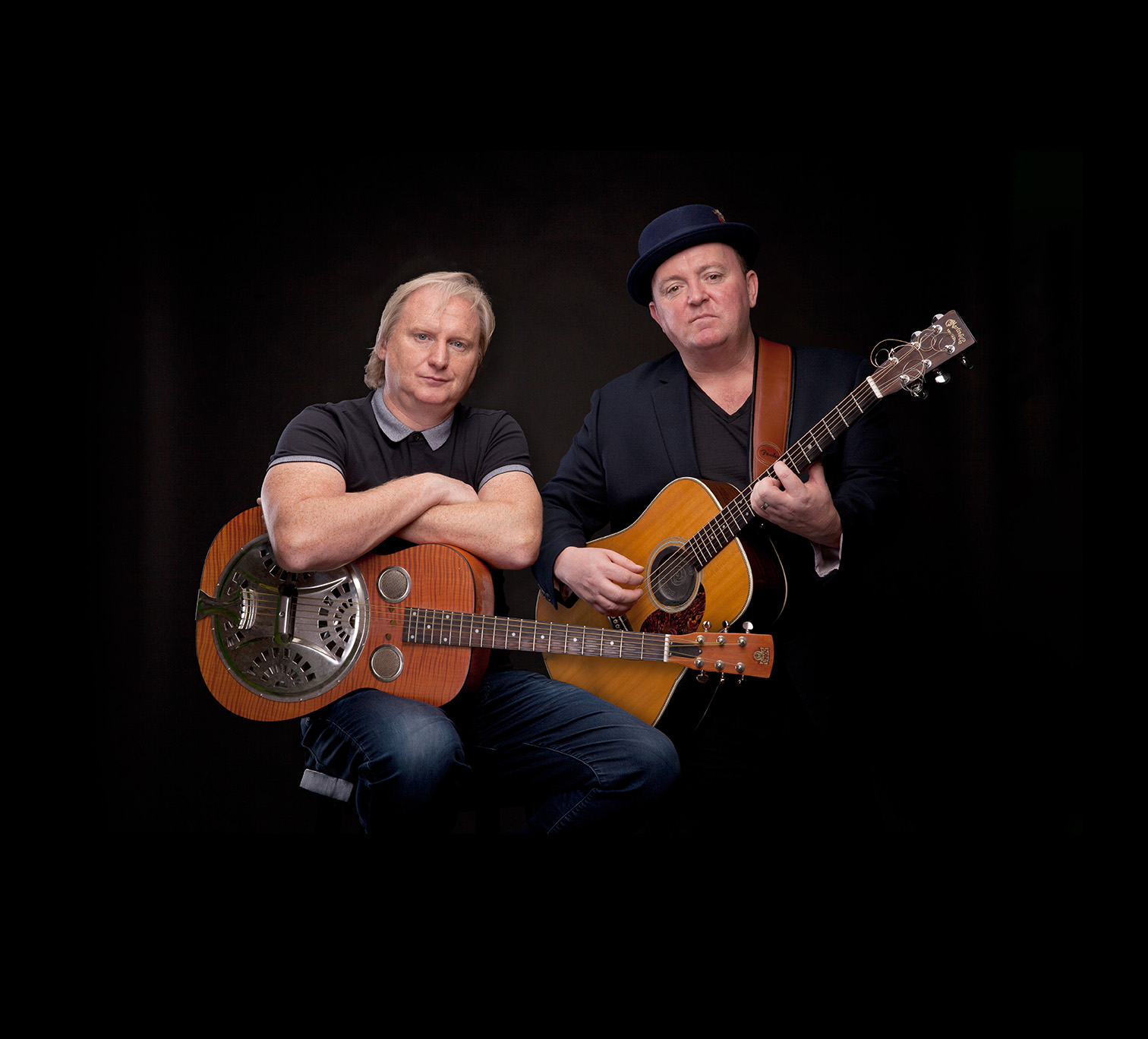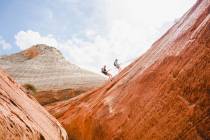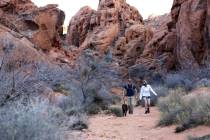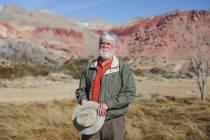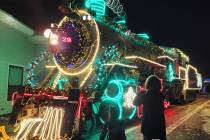He’s been at it for 15 1/2 hours now, up before the sun,down for yet another song.
It’s 8:30 p.m. and Dave Rooney’s got awhile to go beforehis workday is done and a bit of rest can be had. This is his life now.
The bowler-hatted singer-guitarist for Irish music duo The Black Donnellys has just taken the stage at Rí Rá Irish Pub amid a room full of whiskey-sipping conventioneers and suit-and-tie guys jigging awkwardly on the dance floor en route to a private party in back.
“It’s been a long day, folks,” Rooney confesses, betraying little fatigue, his voice as stout as the Guinness on tap. “I’ve been on the road since 5 a.m.”
And with that, Rooney and his bandmate, fellow singer-guitarist Dave Browne, launch into a spirited take on the traditional Scottish folk number “Will Ye Go Lassie, Go?”
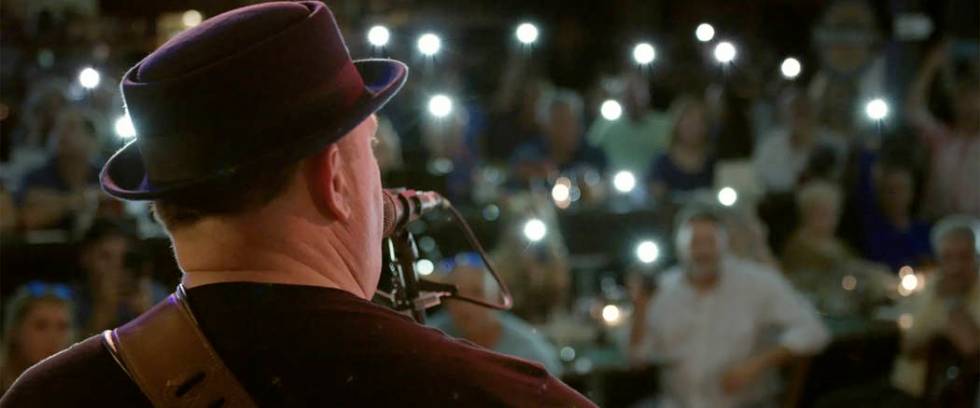
A few songs later, Rooney introduces an original tune of his, “This Is My Home.”
“So we had this crazy idea of playing 60 shows in 40 days,” he says. “It was a very arduous, joyful and bittersweet journey.
I wouldn’t want to do it again.”
Yet they are reliving that journey as the stars of a new documentary, “An Irish Story: This Is My Home.”
Produced by Vegas-based Frequency Pictures, the film chronicles The Black Donnellys’ attempt to set a Guinness World Record for playing 60 gigs in 50 states in 40 days. From May 11 to June 14, 2018, the duo traveled 26,000 miles — 2,000 more than the Earth’s circumference — by land and sea, by dodgy RV and late-arriving jetliners.
Their journey was wracked by the kind of turbulence capable of rattling engines off wings: money shortages, broken bones, angry volcanoes, bar fights, and the occasional run-in with Pennsylvania police.
“We were filming the Liberty Bell,” Rooney says of nearly getting arrested in Philadelphia. “You’re not allowed to do that, apparently.”
Through it all, they soldiered on, whether they were performing in nursing homes in Alaska, youth correctional facilities in Colorado or — in what has to be a first — at a carpet cleaning company specializing in post-homicide scenes in Tennessee.
“Home” captures it all in humorous, agonizing, earnest and often heartfelt detail, the film unspooling as something far more than a tour documentary, but an examination of the American dream itself, with a pair of Irish immigrants questing for both an understanding of — and a place within — the country they now call home.
Due out on March 17, the film has been picked up by all the major streaming outlets — Amazon, Hulu, Netflix and Roku among them — and will be released around the world throughout the year.
Already their lives have begun to change: In the past month, they’ve rubbed shoulders with famous actors at film festivals, are planning a promotional tour around the country and having meetings about TV projects in Los Angeles, which is where they were for much of this day, returning to town about an hour before their set.
“It was hard, wasn’t it?” Rooney says of his band’s record-pursuing quest, addressing his bandmate while leaning into the bar in a back room of Rí Rá before their show.
“Thank God we were drinking heavily,” Browne counters.
Welcome ‘Home’
Challenges, beer — Dave Browne can appreciate both.
And so the man who once played guitar for 414 hours straight, setting a Guinness World Record, began looking for a new test of his mettle in 2017. He and Rooney had already set the mark for the longest concert ever at 372 hours. (Both marks were set at Rí Rá in 2011 and 2014, respectively.)
Native Dubliners, their history dates back to 2004, when they started bumping into one another in the Canary Islands, where both were working the resort scene.
Browne already had a regular gig at Rí Rá, and eventually Rooney joined him for two-week stints, beginning in 2011.
Three years later, they became a resident act at the restaurant, moving here with their families.
The Black Donnellys are named after a family of Irish immigrants who relocated to Canada in the 1840s, some of whom were infamously murdered in a dispute with another family.
The Black Donnellys’ appeal — Browne’s a master six-stringer who plays his acoustic guitar with Angus Young-like aplomb; Rooney possesses a voice that could make a monkey wrench sigh — extends to how they carry themselves on stage.
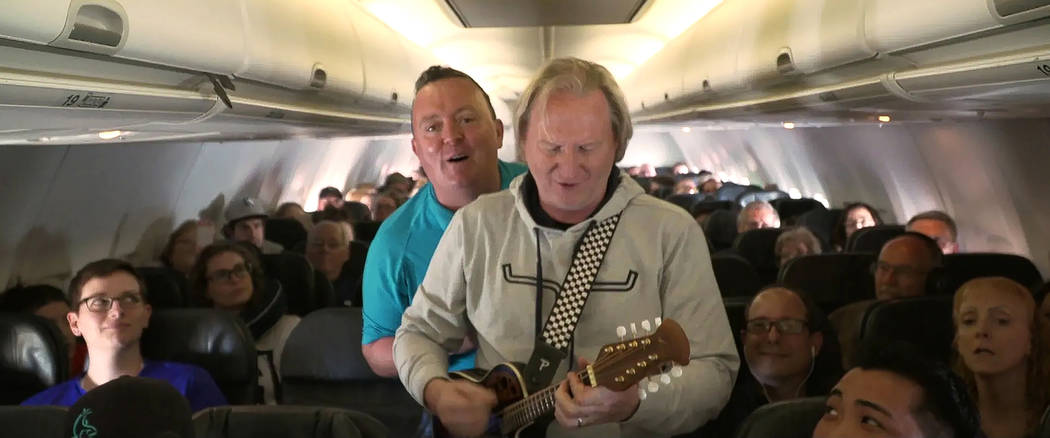
They’re both preternaturally gregarious, hams-from-the-womb types who you just want to have a beer with — and they’ll most definitely have a beer with you, maybe two. If you’re not laughing with them, they’ll supply the laughs for you, a pair of natural cutups with an ease about them, which helps when vying for attention in bustling eateries and pubs.
It’s Browne who has proposed the record-setting ideas, the latest of which came after a Black Donnellys’ set when he struck up a conversation with an acquaintance in the crowd.
“He said, ‘Oh, tomorrow, my niece and nephew are going to see their 50th state,’ ” Browne remembers. “I was like, ‘Is that a thing?’ ”
Browne then hit Google: “What’s the world record for doing 50 gigs in 50 states?” Turns out George Thorogood did it back in 1981.
So Browne came up with a new way to best that mark: 60 shows, 50 states, 40 days.
His partner had reservations.
“I ignore him a lot of the time when he starts talking stuff like this,” Rooney acknowledges, only half-jokingly. “He’s got a way of convincing you that it’s possible,” he continues, “and slowly but surely, it kind of gets around to ya, ‘Oh man, I’m giving into this.’ ”
On the (rocky) road
Even the fire extinguisher was on fire.
Dave Rooney is recalling the time the Donnellys’ breakdown-prone ride burst into flames.
“That RV was possessed,” he says of their main source of transportation in “Home.” “Our driver broke his toe driving the RV.”
From day one the Donnellys’ were beset by challenges: Their RV wasn’t ready when the tour began so they had to drive to their first gig in Lake Havasu City, Arizona, in Rooney’s car.
Things never got easier: They dealt with show-canceling power outages in Sioux Falls, South Dakota, got stranded in Hawaii, thanks to a volcano eruption, had numerous gigs fall through at the last minute, leaving them scrambling for an alternative on the tightest of schedules — and that’s just for starters.
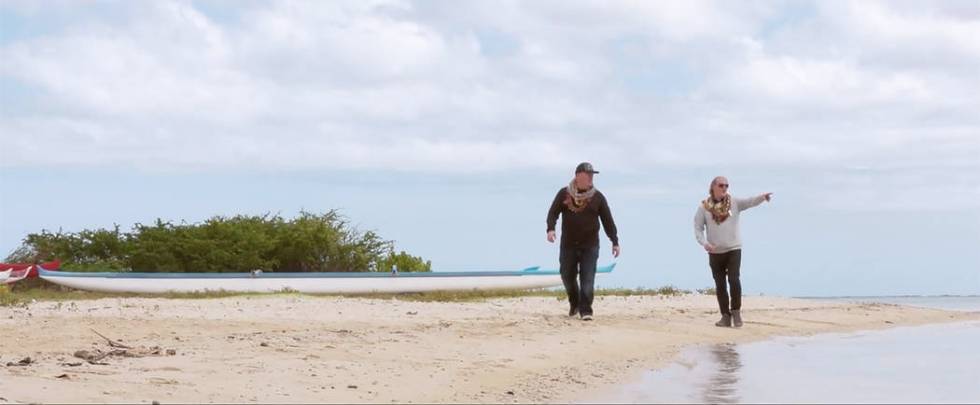
It was a daily comedy of errors, with these two guffawing the loudest: You seldom see them stop smiling and cracking wise throughout “Home,” even when they’re driving straight into the path of a hurricane.
“Gallows humor, man,” Browne grins. “Irish people are so, so good at it.”
“Home” is posited on this kind of laugh-to-keep-from-crying resiliency. The film dates to late 2017, when Rooney met Karl Nickoley, founder of Frequency Pictures, who ended up directing “Home,” his first full-length feature.
Nickoley saw an opportunity to do something more than a tour documentary. By chronicling a pair of Irish immigrants pursuing their dream in another country, he could assemble a film that reflected upon what it means to be an American.
“This country right now is very polarized, whether you’re right or you’re left, there’s definitely a line drawn and you’re either on one side or the other,” Nickoley says. “But in reality, we’re all a mixture of all of these things, and that’s what makes this country so great. We wanted to tell the story of the American dream. We just didn’t know how it would all shape up.”
It almost didn’t shape up at all.
The project was funded by the Donnellys, and that funding quickly ran out.
“There were all these different obstacles, and the guys were always presented with money issues,” says Nickoley, who whittled 330 hours of footage down to an 89-minute film. “It was always, ‘What are we going to do? Are we going to turn around?’
“Right around Salt Lake City, it was very apparent that they were probably going to give up,” he continues. “But they kept going, they figured out a way, and they kind of boot-strapped it from one gig to the next. I mean, I remember multiple times when there was $25 in the account and we had 500 miles to go.”
The band raised donations periodically via GoFundMe. Still, none of the crew got paid during the trip, with the Donnellys often relying on CD and T-shirt sales to generate gas money to get to the next city.
The duo’s fiery live shows helped.
“They drop in like paratroopers, especially down South, and people are looking at them like, ‘Who are you and why should we even listen to you?’ ” Nickoley recalls. “And 90 minutes later, they had the entire crowd — in almost every venue they played — wrapped around their finger.”
“To me, as a filmmaker, that is America,” he elaborates. “You have this prejudgment of people, maybe on the outside, and then you get to know them and see their talents and experience what they bring. Then it’s like, everybody’s the same. We’re all people, man.”
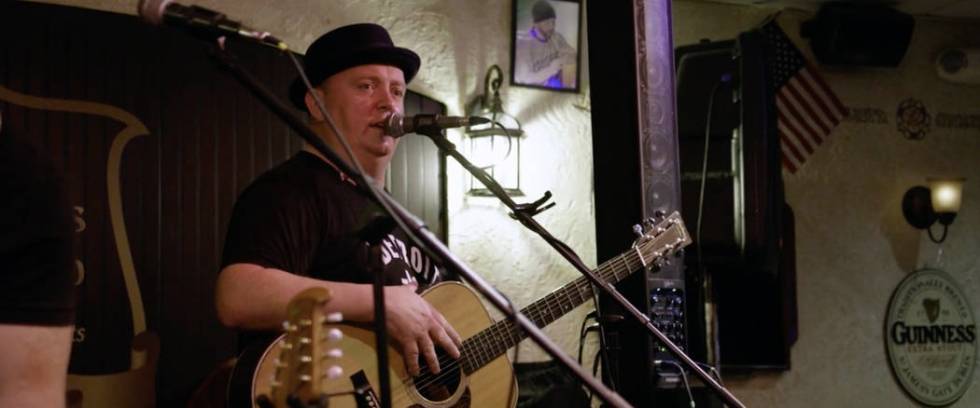
‘An emotional journey’
It’s a scene that could have been scripted, save for all the unscripted emotions on screen.
It’s the last day of the tour, and Dave Rooney has just learned that he’s been granted a green card.
The father of four can now officially live in America. It’s a seriously poignant moment for a man who spends most of his time on camera not taking himself seriously at all.
“Did you cry?” Rooney asks a reporter after he views “Home,” a fair question that likely will be answered in the affirmative by many. But whether or not “Home” moistens your eyes, it’ll likely spur some reflection on what being an American entails, what it represents, who we are.
Throughout “Home,” various immigrants are interviewed during the trip, offering their perspectives on what it means to be a part of this country, with the Donnellys doing the same upon visiting the White House, Ellis Island and other historical sites.
The idea isn’t to take sides on the issue of immigration, but to question the point of taking sides to begin with.
“You could very easily be drawn into a political conundrum,” Rooney says. “People are quite protective of their country — and rightly so. We have the same in Ireland, an influx of people who you might or might not necessarily agree with being there.
“We did our best not to swing left or right,” he explains. “This is apolitical. It’s more of an emotional journey.”
And that journey is just beginning. Next the Donnellys will take “Home” to the Beloit International Film Festival in Wisconsin and the Chicago Irish Film Festival after that.
The documentary already has been a hit at the Napa Valley Film Festival, where the duo made a fan of actor Kevin Bacon, who asked Browne to give him tips on playing the mandolin for an upcoming role.
In a frustrating twist for the band, Guinness has yet to recognize its trek as a record-setter, which is acknowledged at the end of the film. The guidelines for what constitutes a show still are being debated.
“In all truth, we did everything by the book,” Rooney says.
Nickoley notes that the band has plenty of documentation of its travels and hopes that Guinness will recognize the Donnellys’ efforts once the film comes out.
“It’s like trying to fit a square peg in a round hole,” he says. “Guinness is not acknowledging the number of shows, they’re just acknowledging the amount of states and the time it took.”
Still, the Donnellys don’t seem all that upset that about not getting the record at this point.
The experience was its own reward, at least to them — and a uniquely American experience.
Besides, they’ve got a job to do, a show to play.
“We’ll keep hustling either way,” Browne says. “It’s what we do.”
And so they head toward the stage, lacking sleep, if not dreams.



